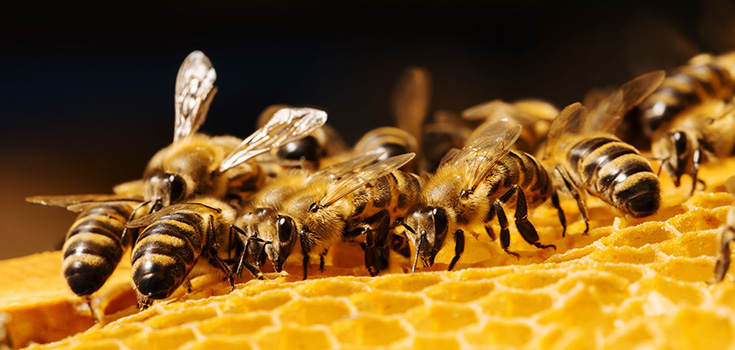Minnesota Considers Restrictions on Bee-Killing Class of Pesticides – Neonicotinoids

The neonicotinoid link to colony collapse disorder – the phenomenon of pesticides killing our nation’s bees, one of the most important pollinators for food crops – is a heated and highly charged subject. While there are detractors from the anti-neonicotinoid movement, the state Department of Agriculture in Minnesota is considering banning this controversial class of insecticides to protect the bees.
This would be the first time regulators in the state would consider banning these particular formulas of pesticide chemicals due in part to concern expressed by a number of expert opinions that ‘neonics’ are killing honey bees, as well as sparking a considerable amount of public interest in the subject. They have proposed a revised outline to study the chemicals to discover their true effects on bees and other pollinators.
Gregg Regimbal, an official with the department’s Pesticide & Fertilizer Management Division, said:
“Obviously people are very interested in this. It’s a very complex issue and it’s highly charged.”
Earlier this year, the agency was bombarded with over 400 letters and emails about neonics and bee deaths. Many individuals wanted to know why the original study proposed by regulators did not even consider a ban on the chemicals.
The public outcry included a letter submitted in May by 17 DFL legislators, who were resolute that the department should broaden the scope of its review. The 2013 Legislature called for the Agriculture Department to revisit its opinion on neonicotinoid chemicals, and the group of 17 was miffed that the agency’s original outline did not consider the possibility of a ban or other restrictions on poisonous neonics.
The newly proposed outline suggests that the range of actions to be considered by the agency would include “restrictions on or cancellation of products.”
The 17 wrote, referencing a review underway at the federal Environmental Protection Agency:
Related Read: 37 Million Bees Found Dead in Ontario, Canada After Large GMO Corn Field Crop Planting
“The Legislature did not intend that the Department would simply rubber stamp U.S. EPA’s decisions.”
Signers included Rep. Jean Wagenius, DFL-Minneapolis, who is chair of the House Environment, Natural Resources and Agriculture Finance committee.
“We wanted to make sure it was clear that it’s in our authority … and that that would be an option,” Regimbal said.
A ban in Minnesota is plausible if the state conducts a true study of neonicotinoids and their effects on pollinators and other insects, without being swayed by the makers of the insecticides, at least according to Lex Horan, a Minneapolis-based organizer for Pesticide Action Network of North America.
Horan also said people who wrote to the agency are hopeful about the revised outline, and anxious for the results of the upcoming review. He added:
“The state needs to take this seriously. They put out a strong scoping document because of the feedback they received.”
The review will take more than six months to complete.
New York, Oregon, Canada, and Europe have all already placed bans or restrictions on neonics.
Sadly, neonicotinoids are currently the most widely used class of insecticides in the world, according to the state Agriculture Department, and studies have found that they can damage the navigation and reproduction abilities of honeybees and bumblebees, even at low concentrations. Honeybees alone pollinate more than $15 billion worth of crops in the United States.
Furthermore, even the EPA has found that neonicotinoid seed treatments in soybeans provide little or no overall benefits to soybean production for most farmers.
With the passage of a ban in Minnesota on neonicotinoids, hopefully other states will follow.

Does the state of Minnesota even have to “consider” restricting neonicotinoids.
Minnesota should do the ethical and correct thing and ban ALL pesticides in their state and every state in the U.S.A. should follow their example.